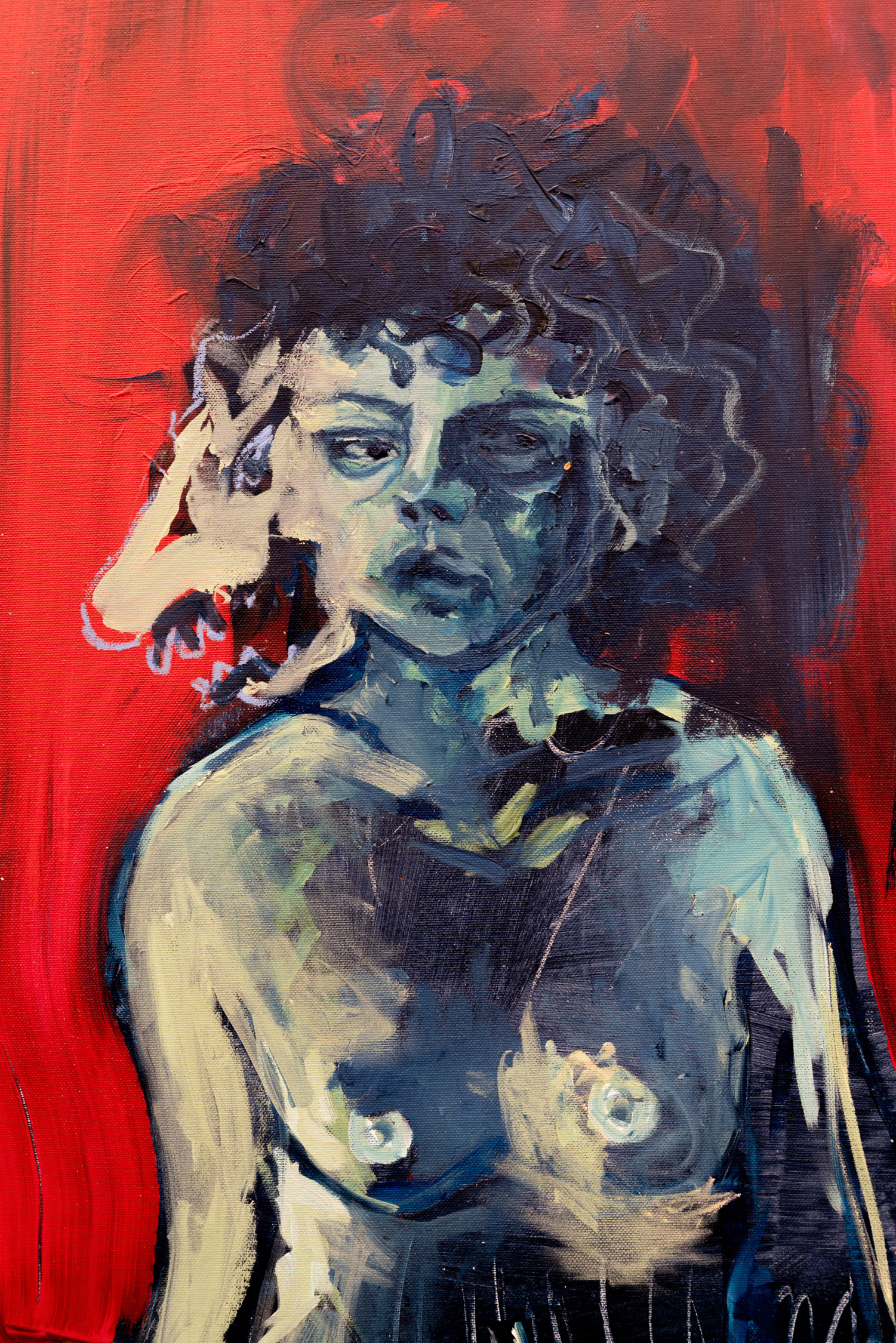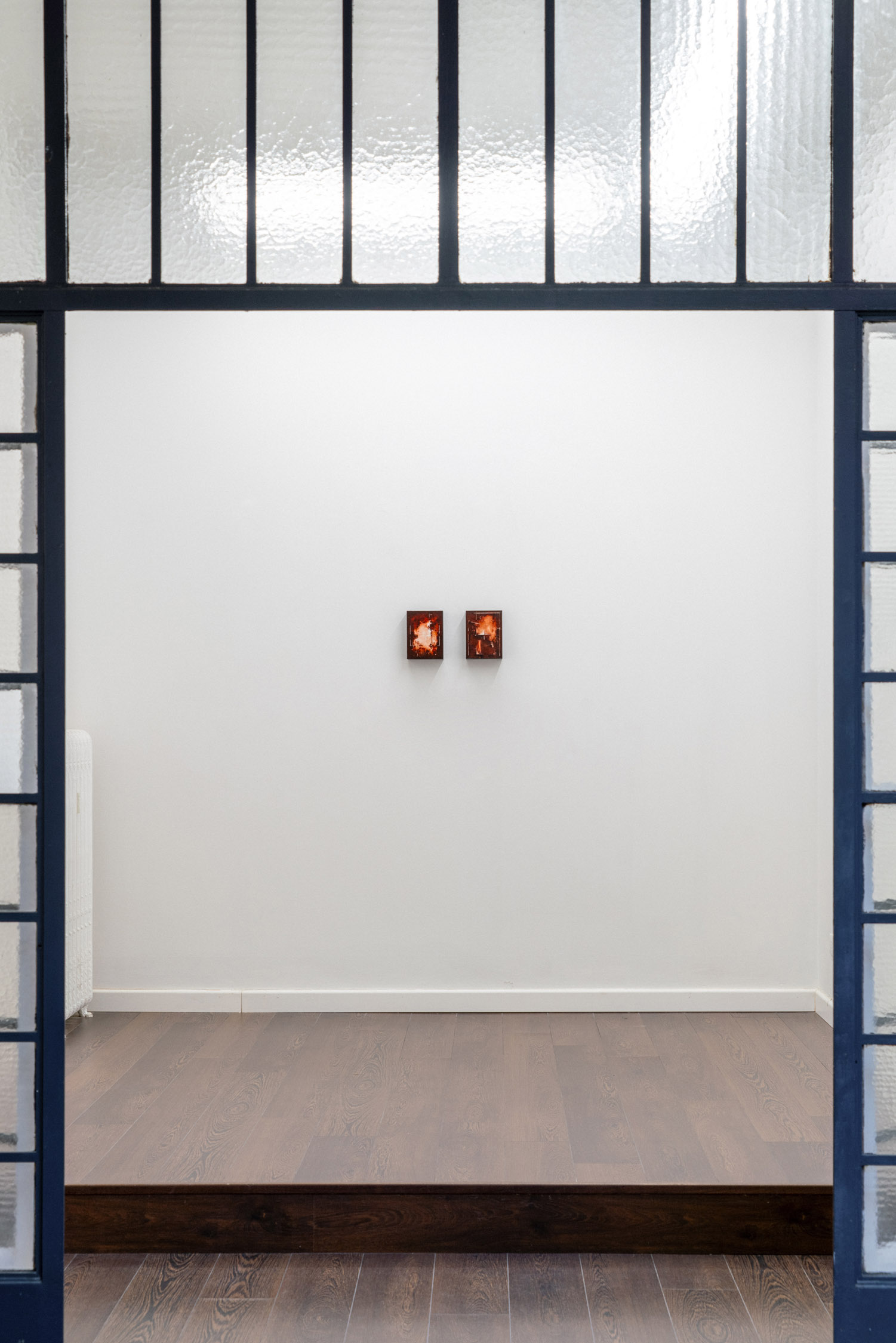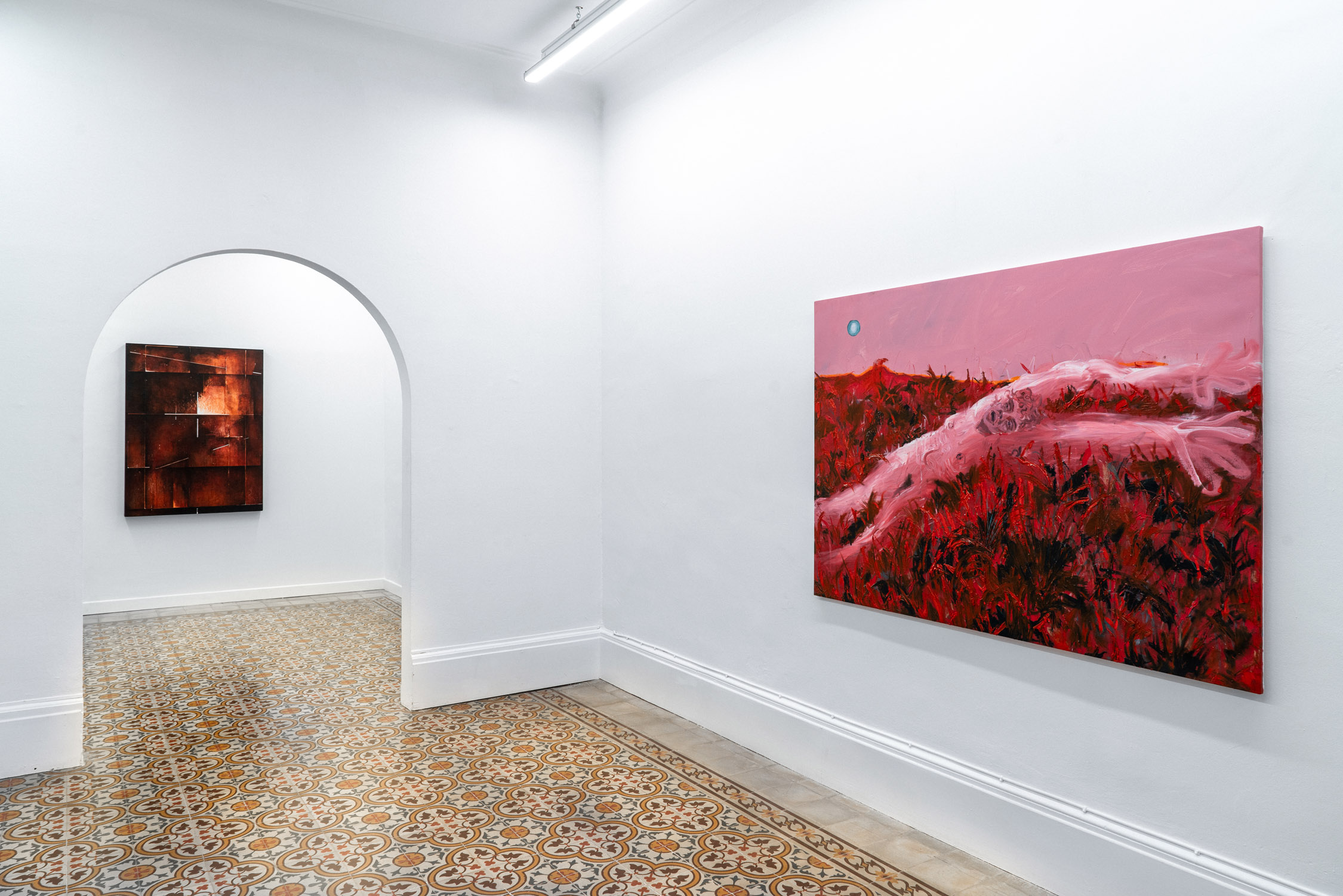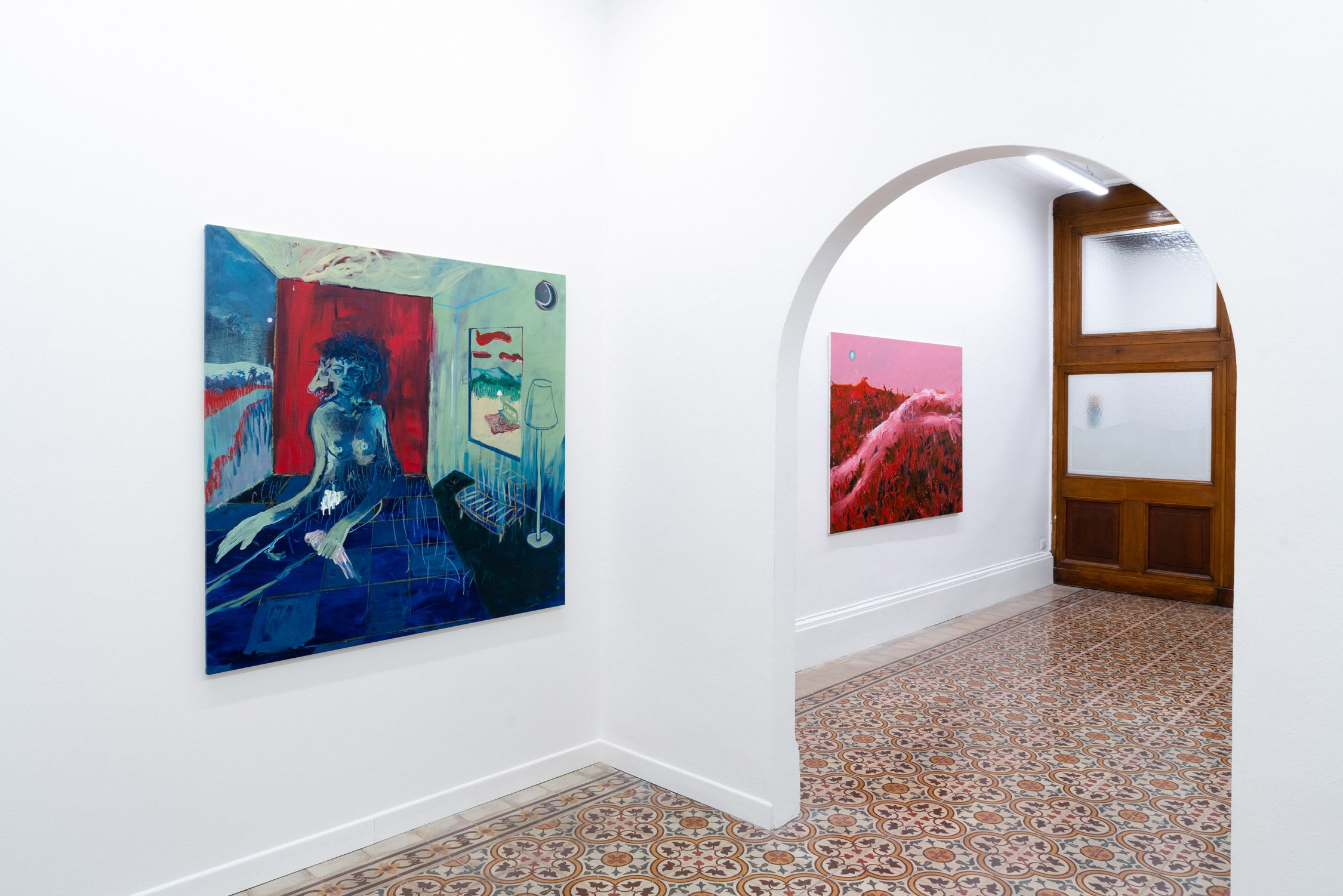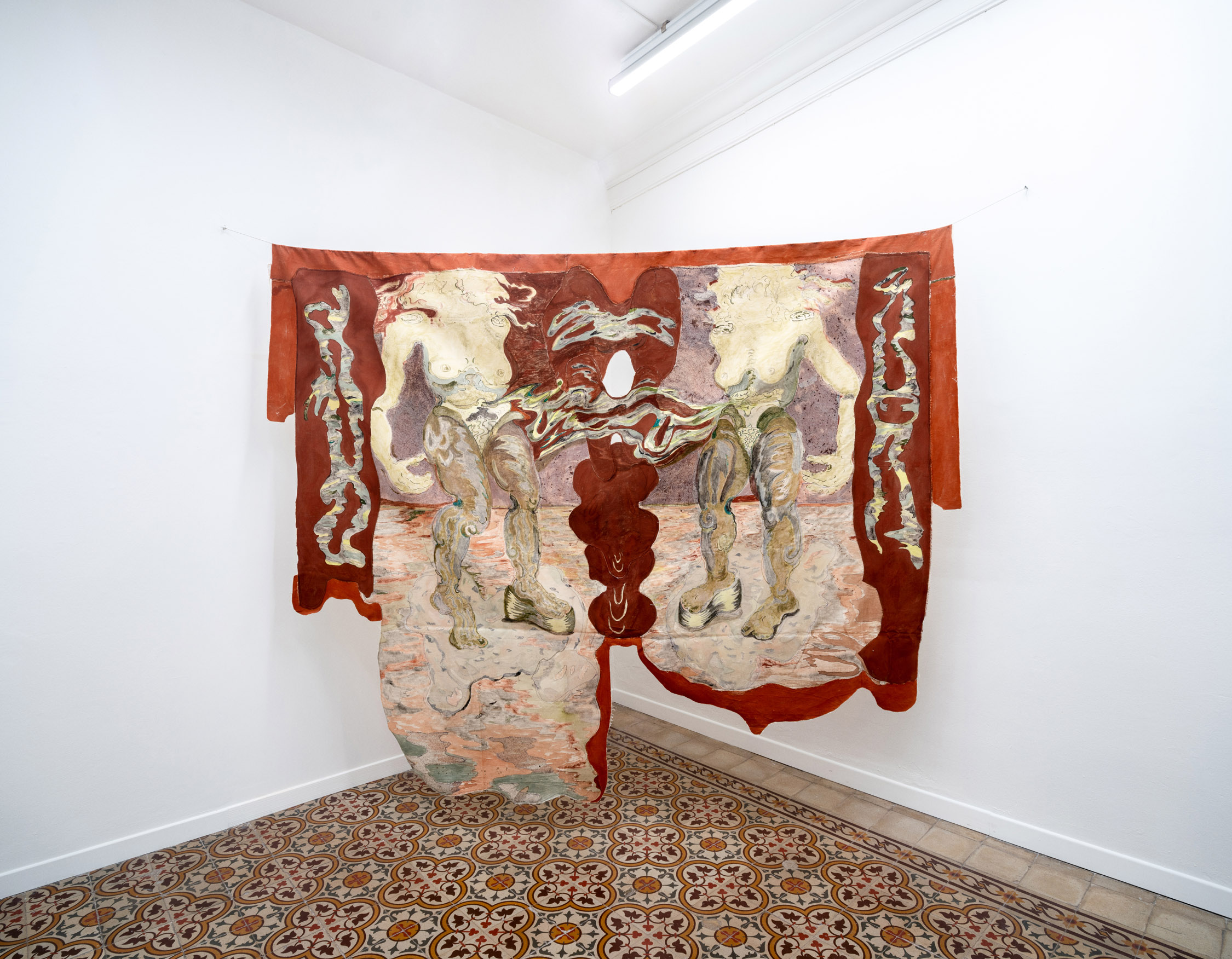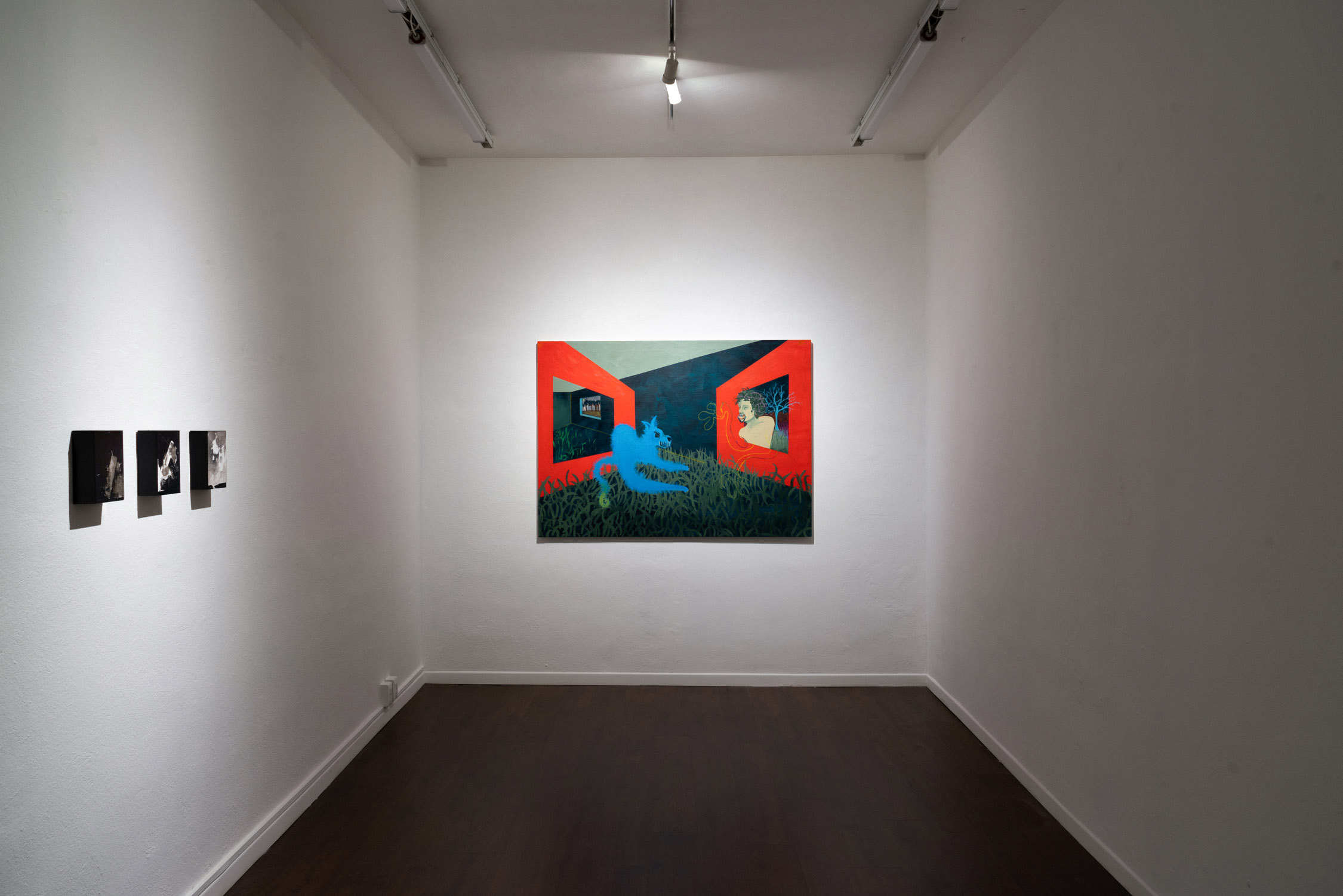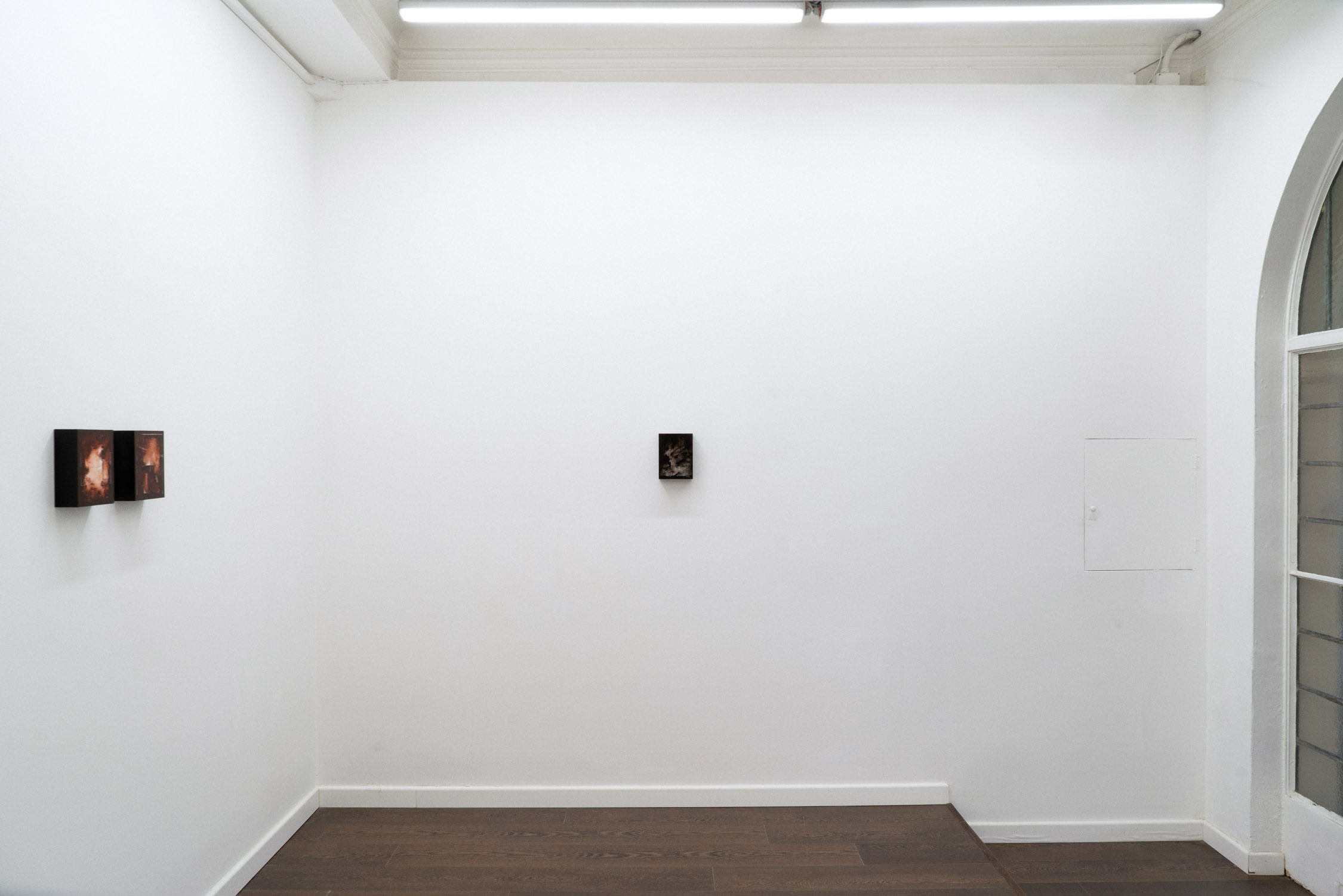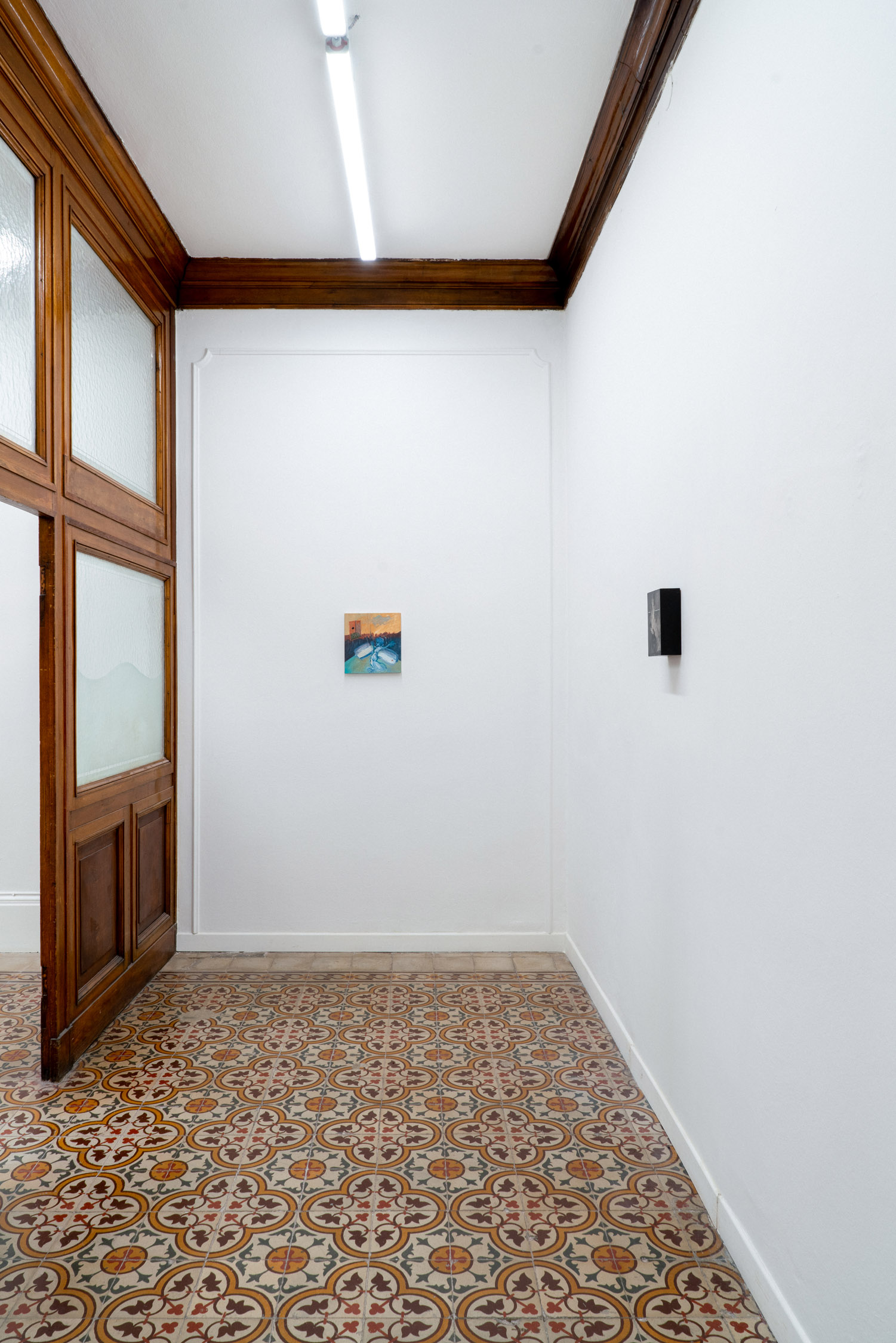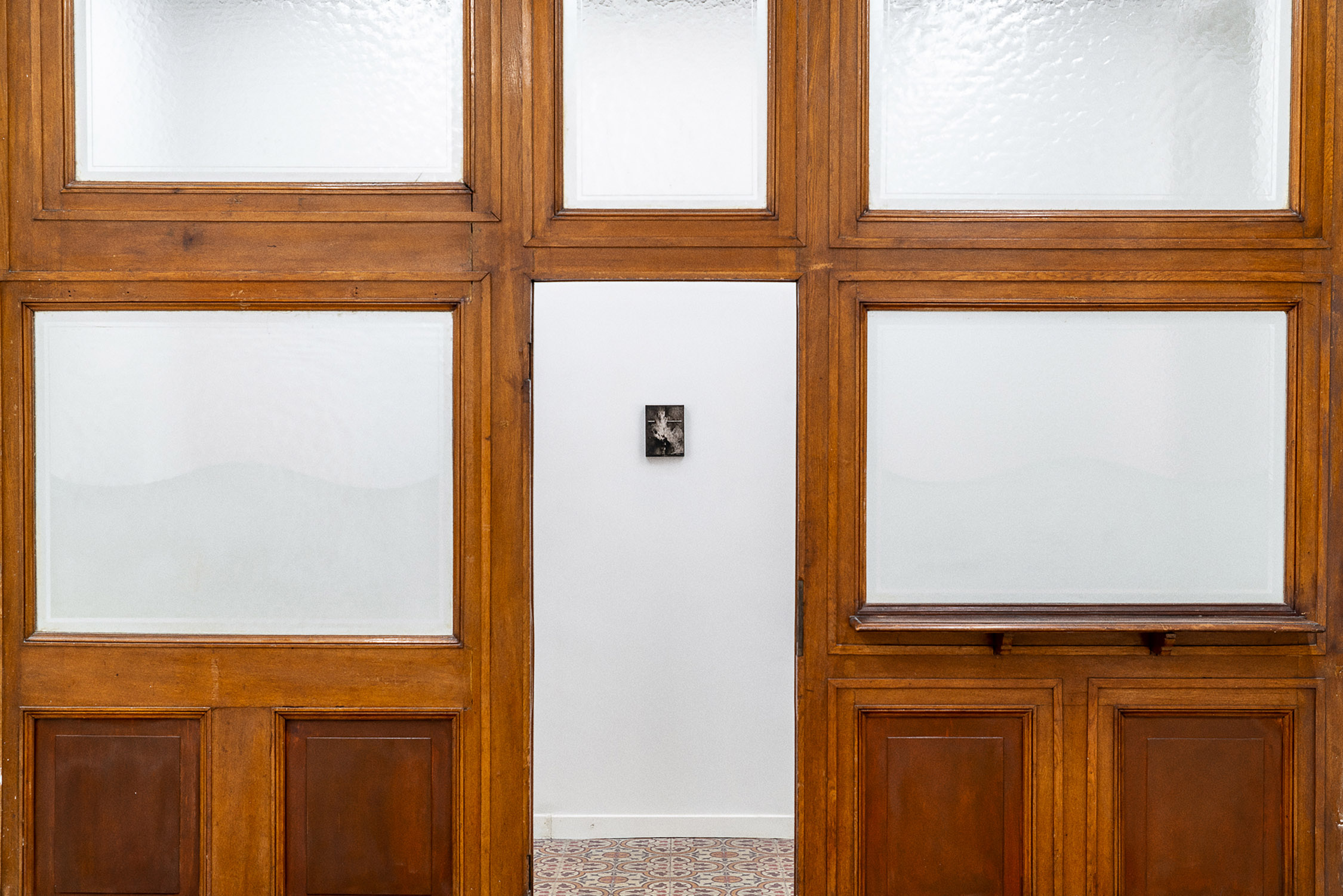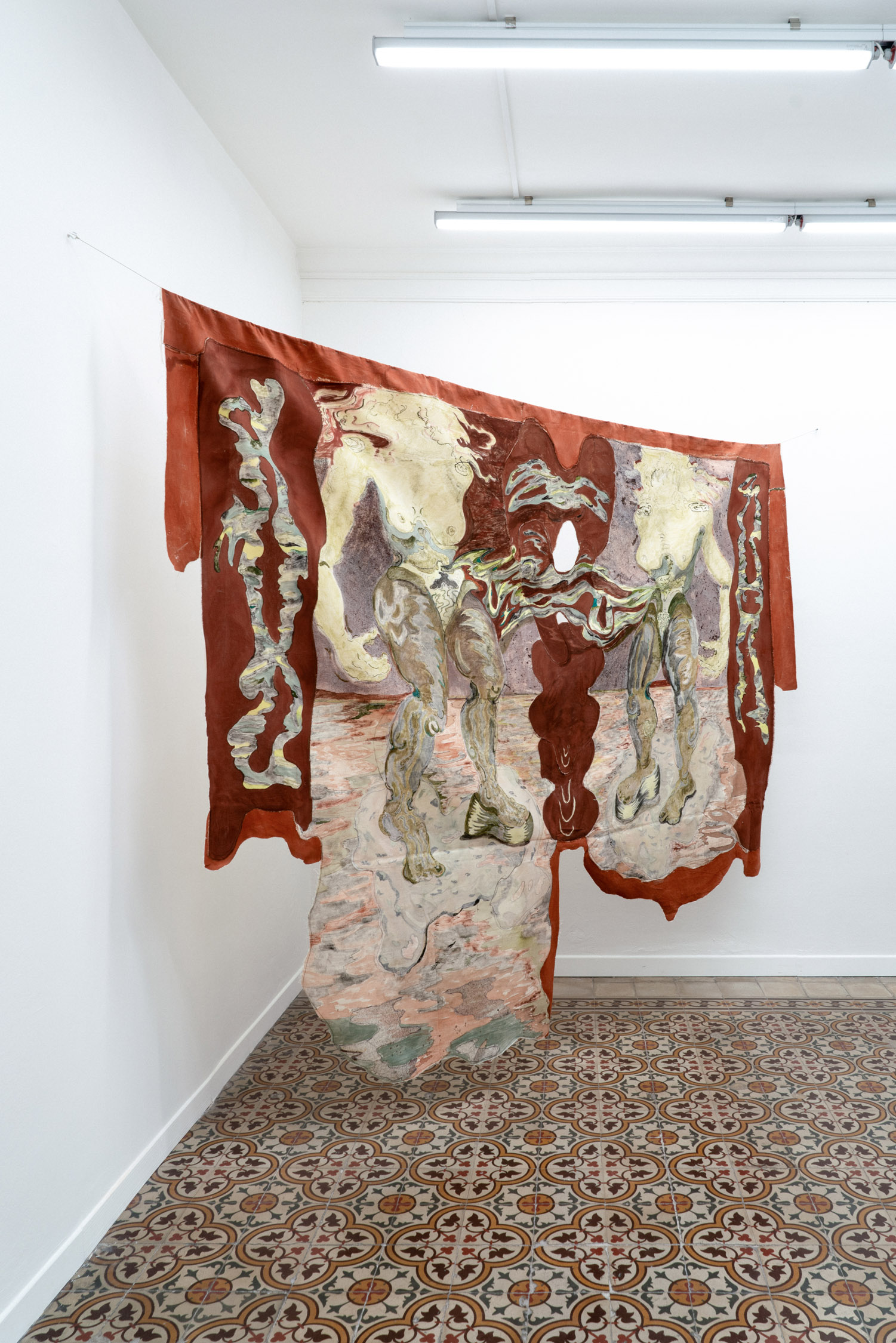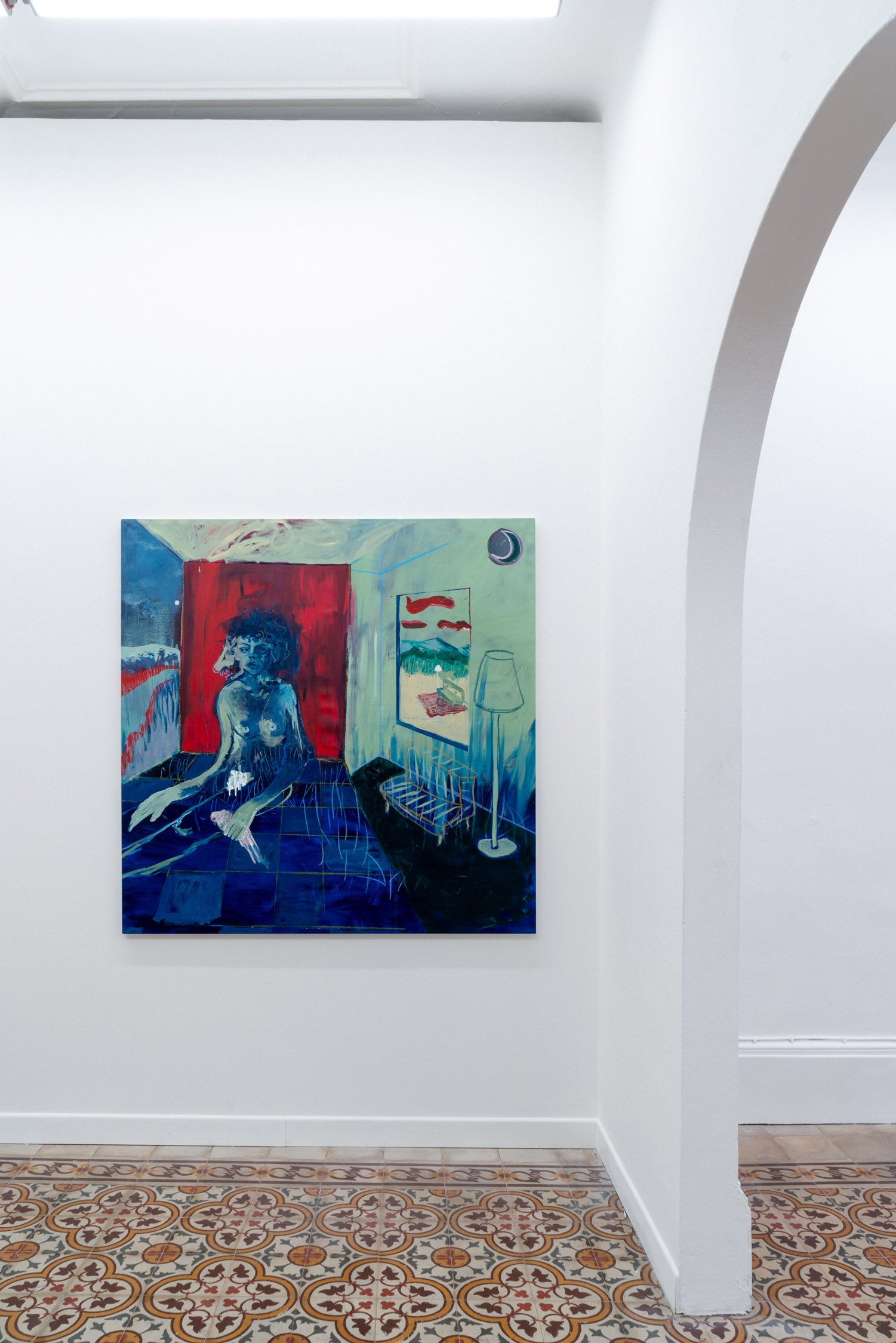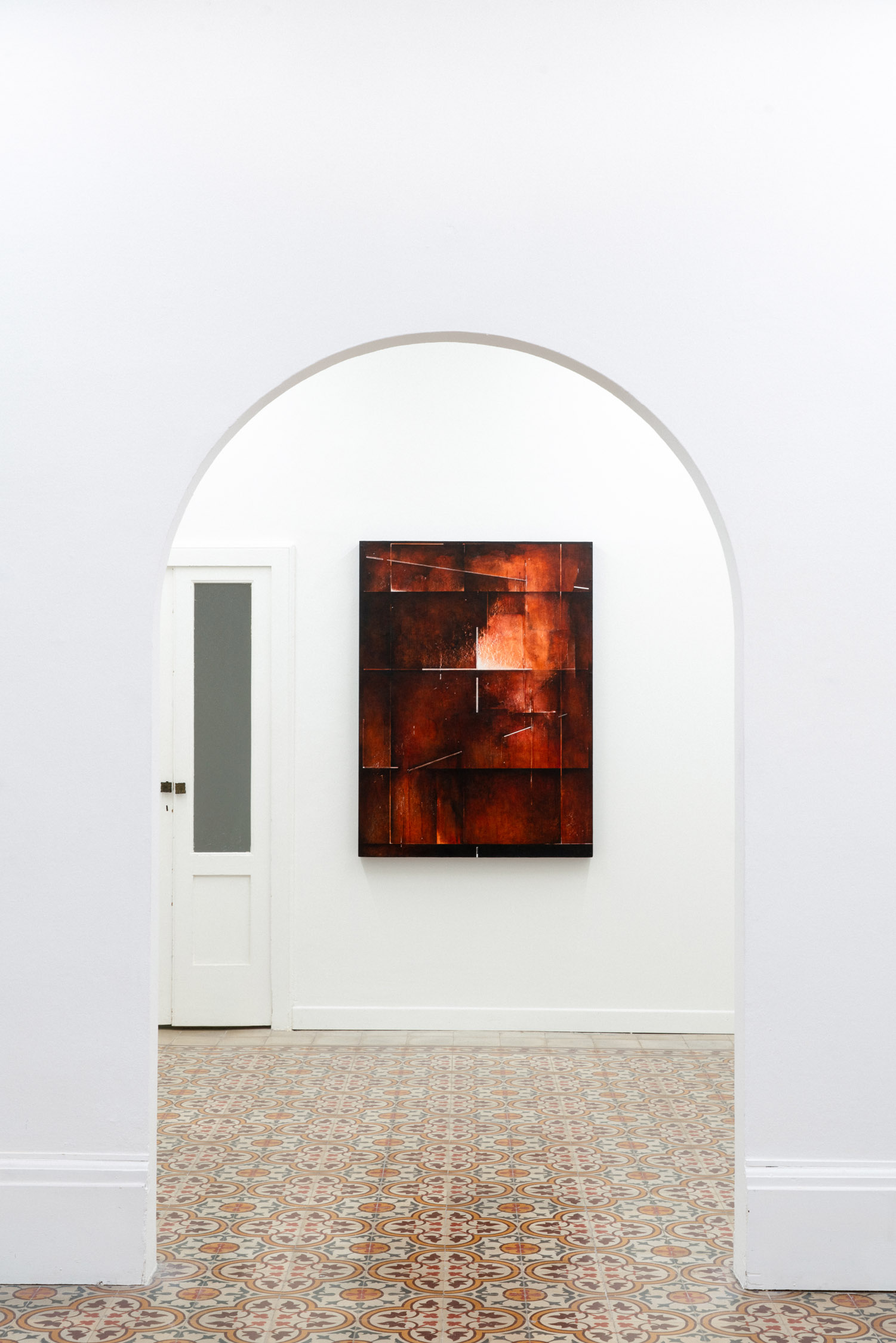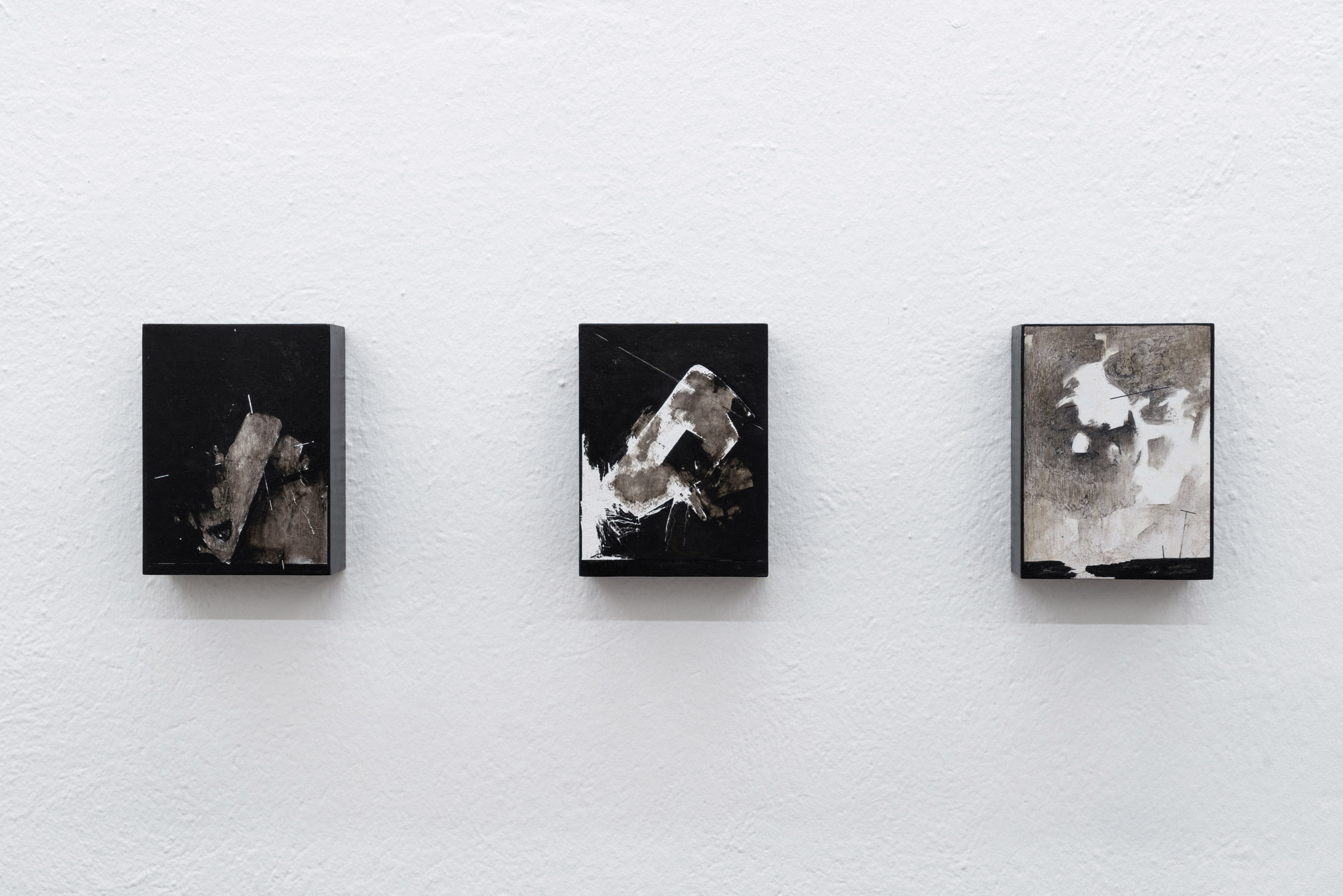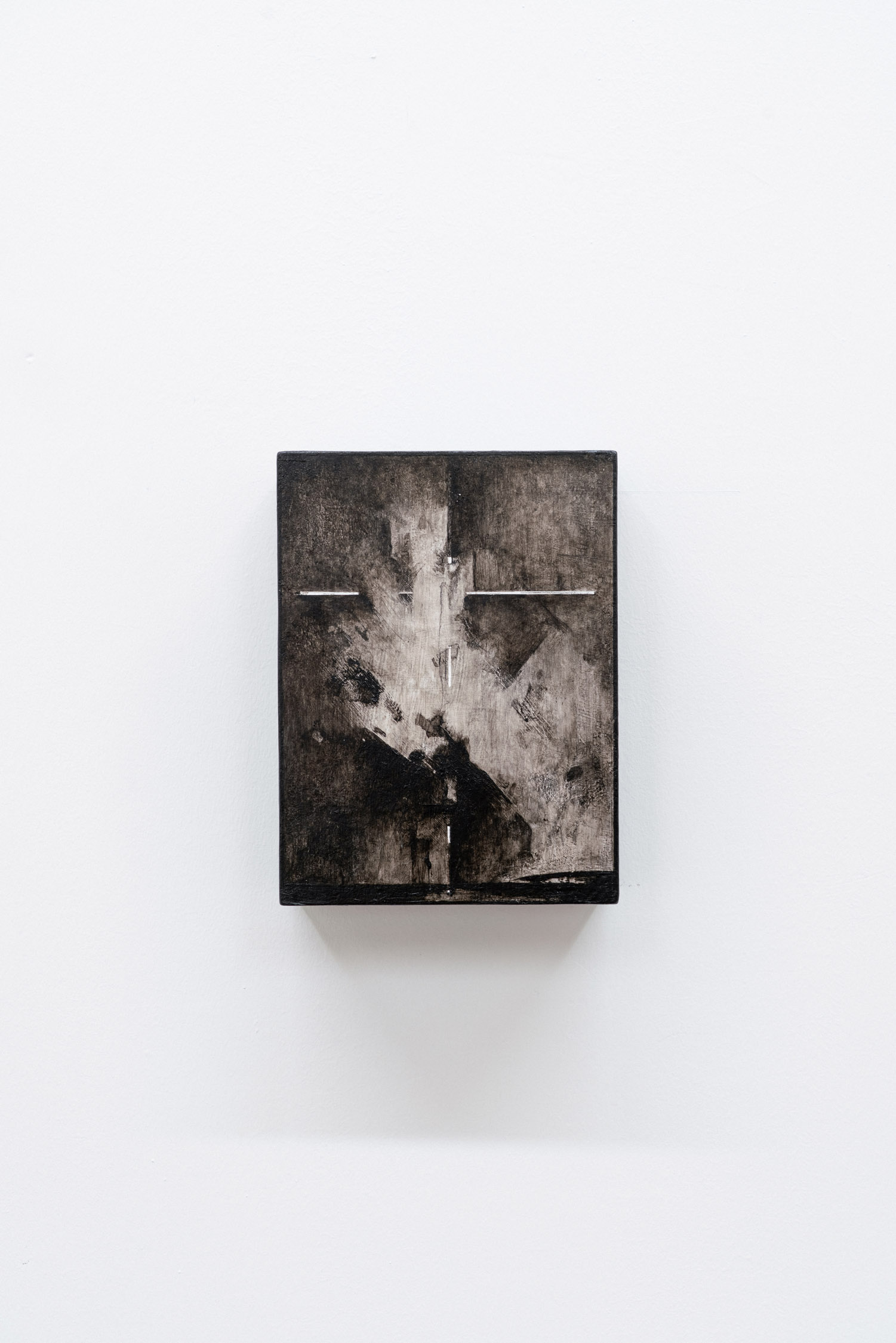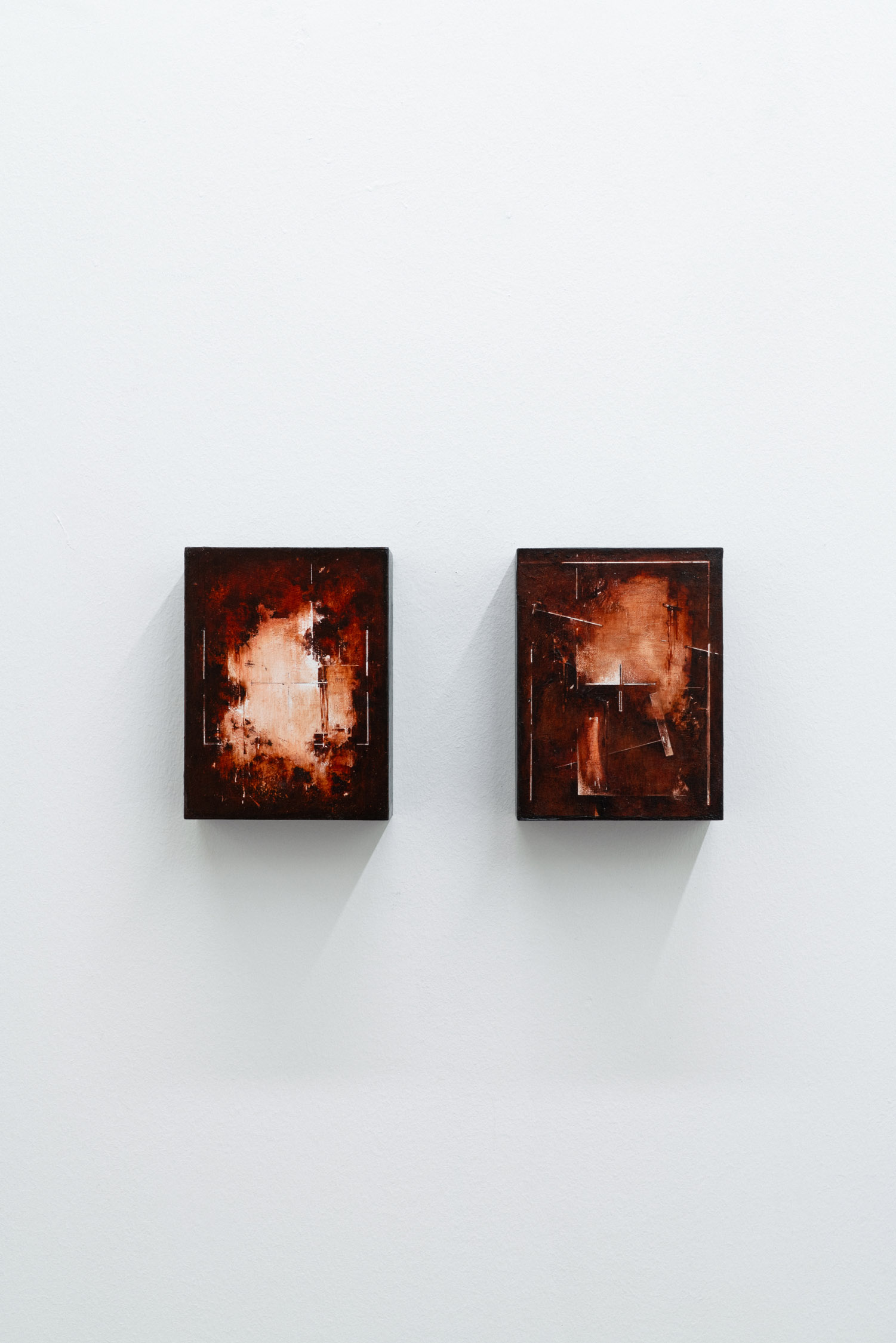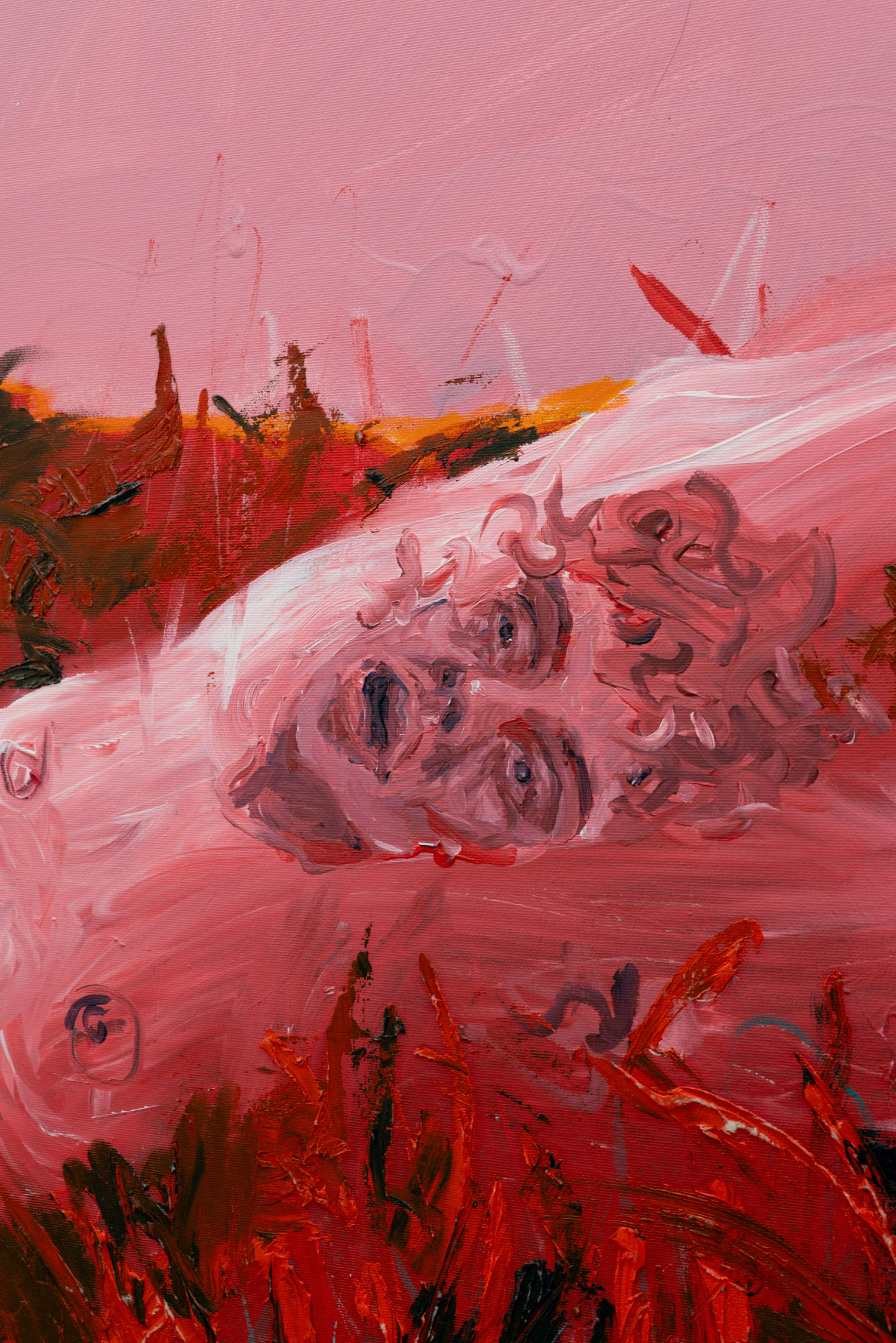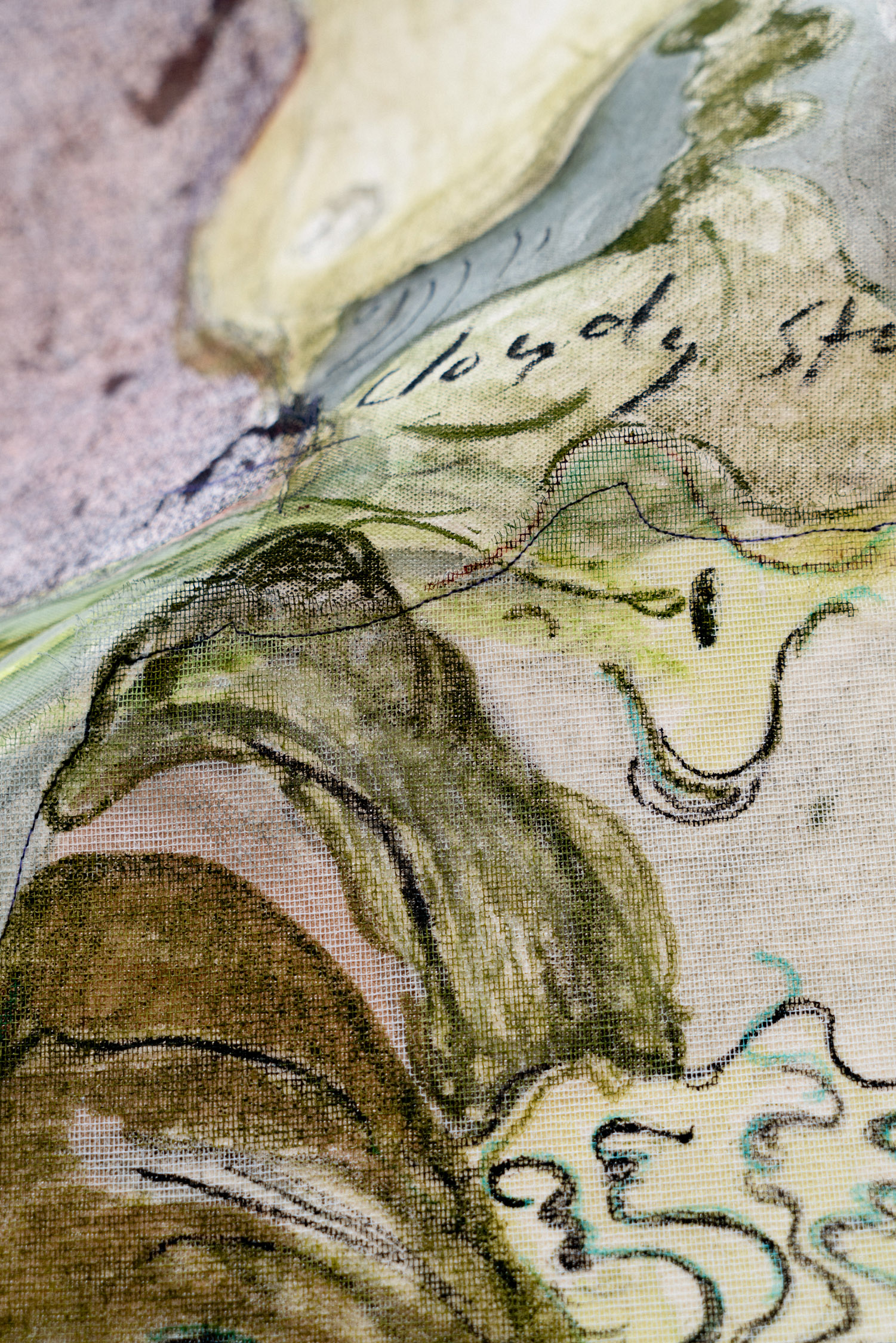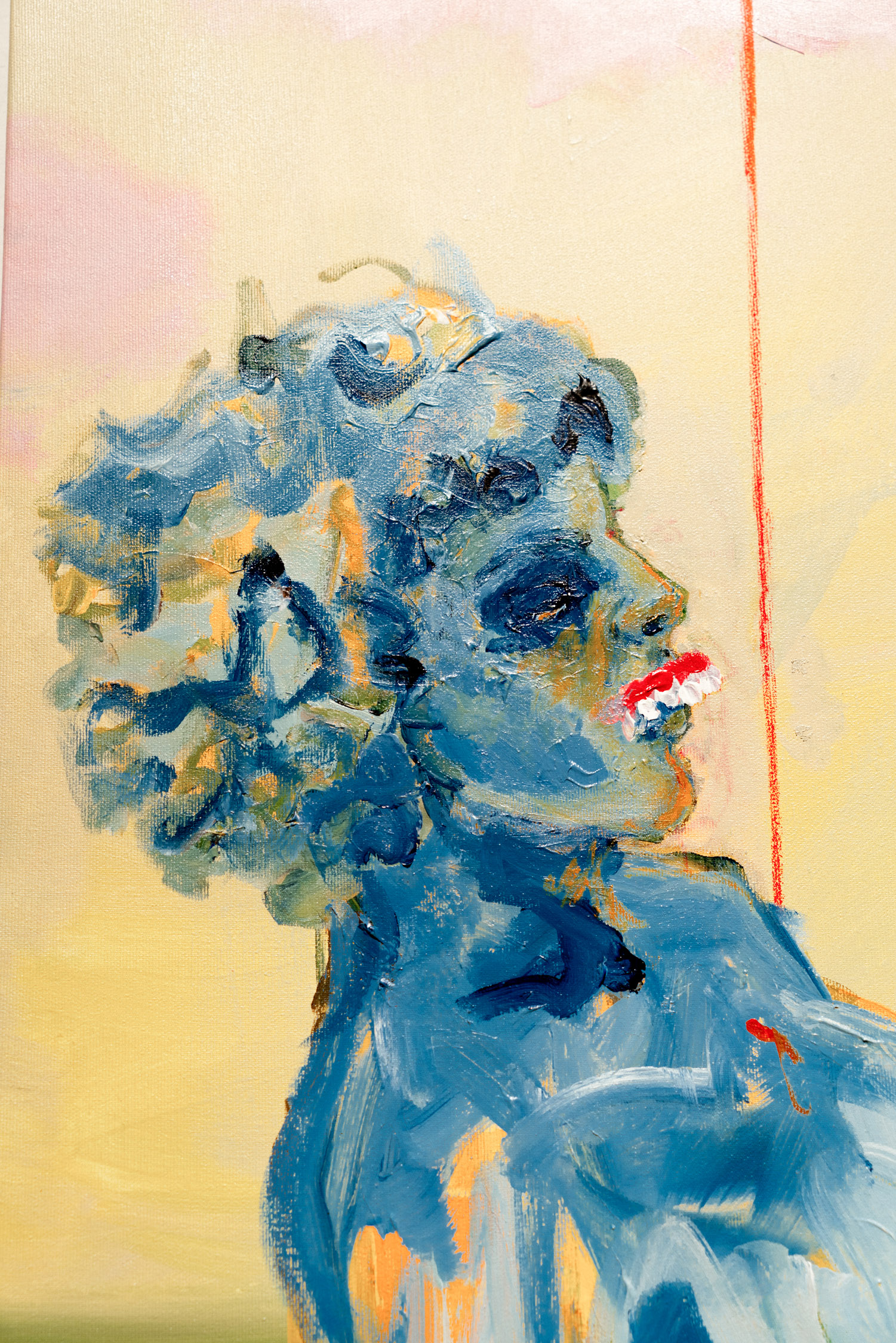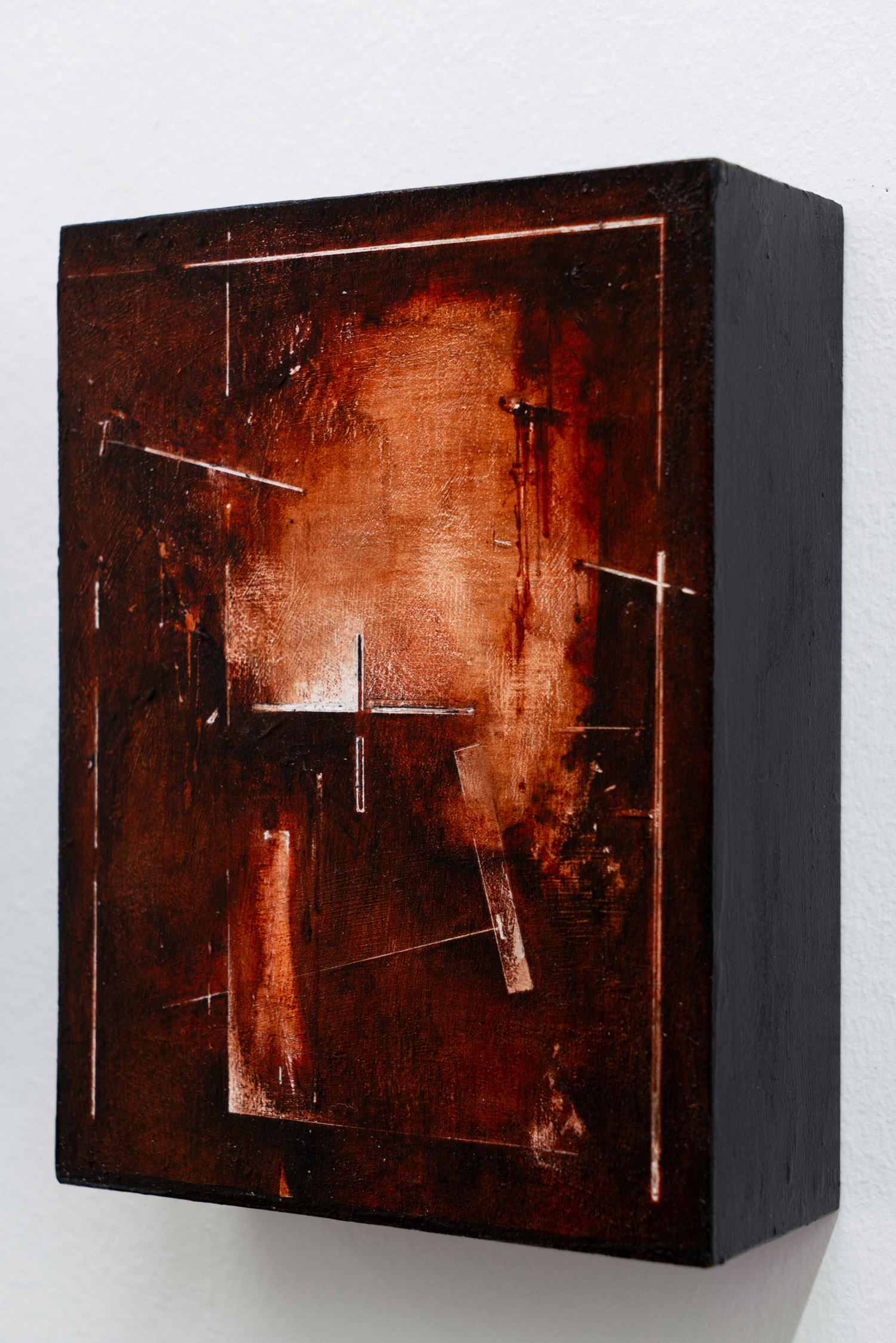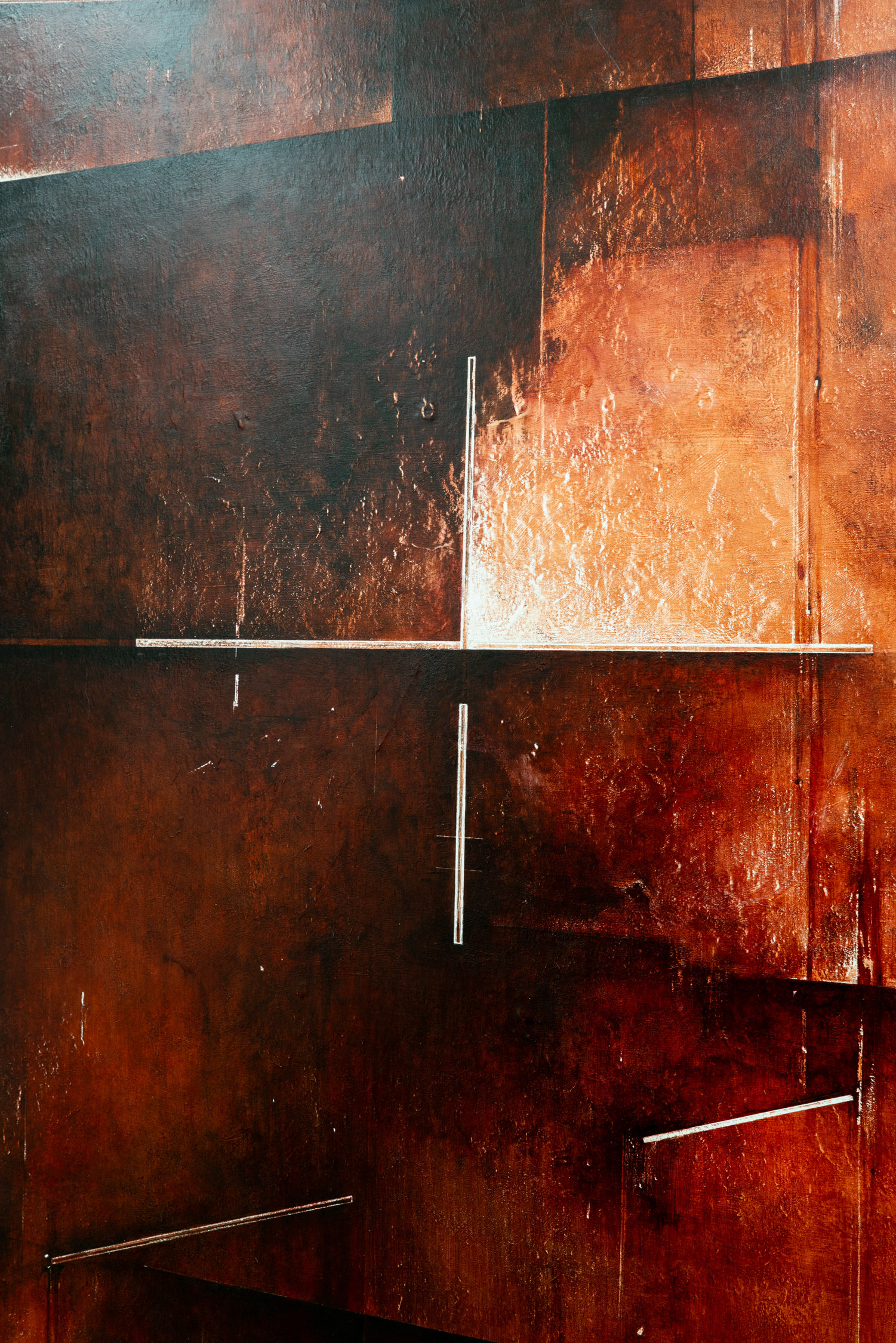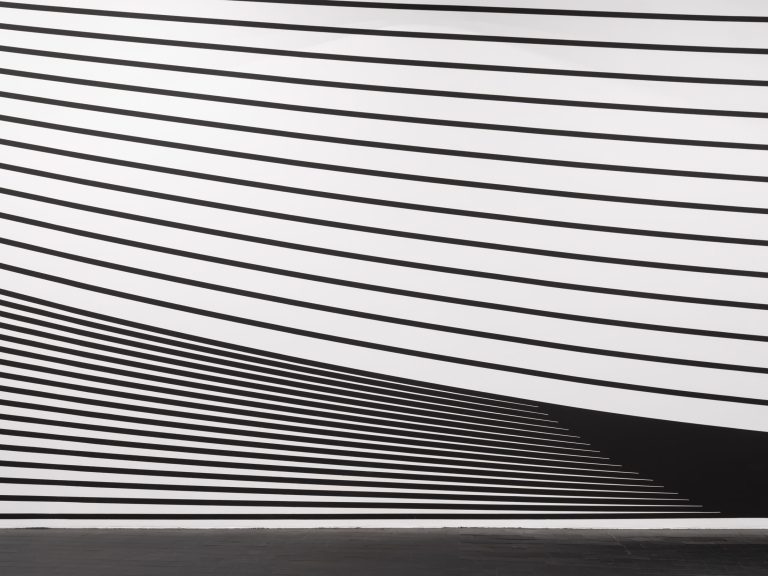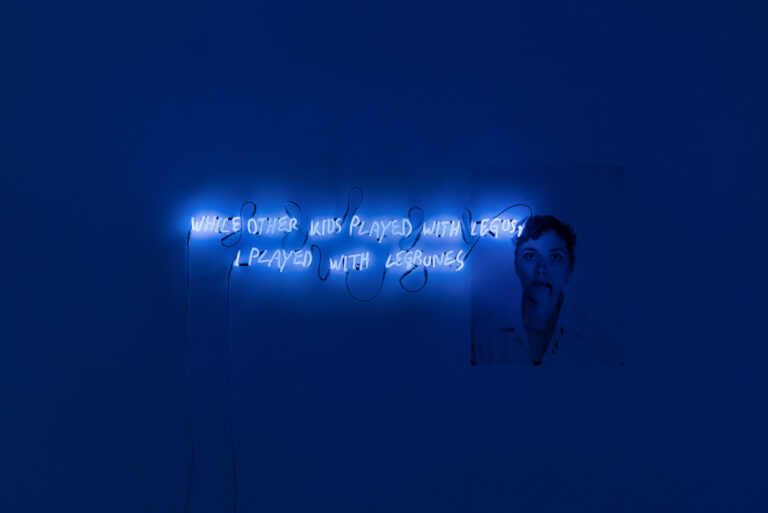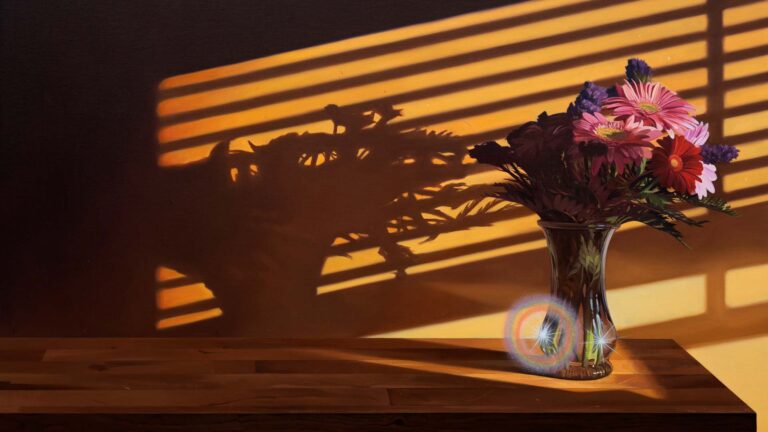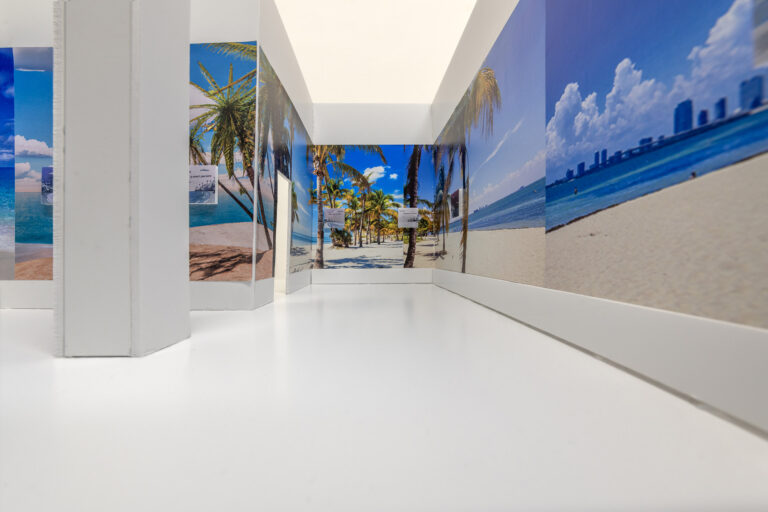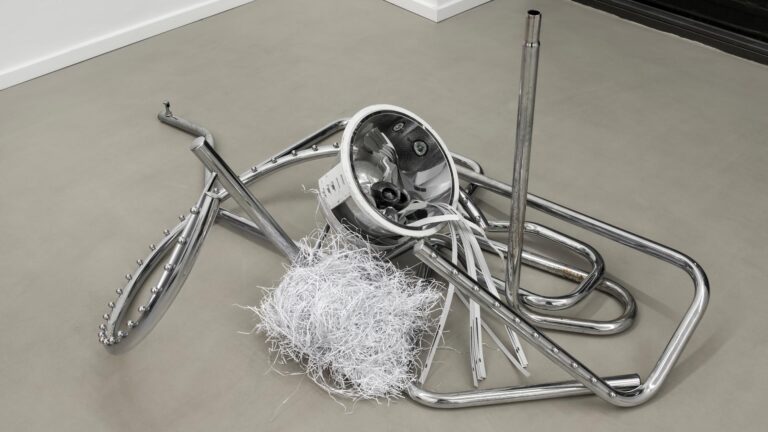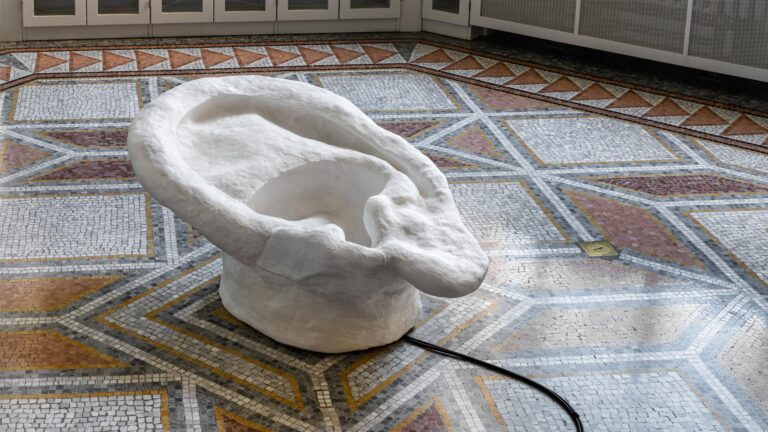Artists: Jeanne Gaigher, Youssra Raouchi, Sofiia Yesakova
Exhibition title: Memories We Have Forgotten
Venue: The Address, Brescia, Italy
Date: February 7 – March 27, 2024
Photography: all images copyright and courtesy of the artist and The Address, Brescia
The Address is pleased to present at its headquarters the collective exhibition Memories we have forgotten.
The artworks, carefully selected and displayed within the gallery, will be visible from February 10th to March 27th, 2024. They are the result of a meticulous exploration that digs beneath the surface of the apparent reality of everyday life, revealing the hidden depths of one’s being. This allows the emergence of fears, sensations, emotions, and free impulses to manifest in an “other” and personal dimension.
The diachronic form and rhythm in which the exhibition journey is conceived enable a dialogue and confrontation between artist and spectator within the context of a moving temporality, inevitably uneven and fragmentary.
Buñuel, a protagonist of the manifesto featuring the famous eye-cutting scene from Un Chien Andalou, asserted that “memory is constantly contaminated by imagination and dreams.” Nothing could be truer. Whether born from events corroborated by solid real testimonies such as the still persistent and widespread wars or originating in the most hidden corners of the psyche, visible both in the majestic work of Jeanne Gaigher and in the vividly colored canvases of Youssra Raouchi, the experiences recorded by memory encompass the trail of doubt, unfulfilled desires, the impulse to repression (more or less partial, more or less voluntary).
The exhibition is conceived as pure dramaturgy, a collection of works in which the three artists, despite being geographically distant, constantly relate and confront each other while maintaining their autonomy in the concept of reconstructing the image of oneself and one’s lived experiences.
Traveling through memory means confronting a simulacrum of symbolic figures, reconstructing an image of oneself in which the reflection of a past altered by memory and the existential tensions of the present converge. It is an eternal recurrence of manipulations and omissions; an incessant attempt to reinvent spaces, reaching the point of losing the conception between what lies outside the domestic walls and what happens within one’s room.
In Jeanne Gaigher’s impressive work, the figures and contexts undergo a continuous process of transformation.
The entire scene, almost like in a Burtonesque cinematic masterpiece, undergoes a process of decomposition and recomposition. Anatomical parts with “meta-human” features come to life through the weaving of overlapping canvases, creating an intricate flow of disappearances, dissolutions, colors penetrating materials, earthy shades, ecstatic atmospheres. Taking a more intimate and psychologically introspective gaze, the South African artist pursues the desire to represent moods and their nuances.
To the awareness of the whims of the individual, entangled in their private hells, desperately striving for the assertion of their integral being and unconscious against the alienating rules and conventions of society, the Moroccan artist Youssra Raouchi seems to respond by digging through an inner search that, laid bare and tragically stretched between the delirium of shouted words from the incommunicability of an external world and one’s own identity, amid monsters with canine appearances and dreamlike settings, she would like to deliver to contemporaneity.
In the deafening silence of a missile launched by a drone, in the iron and beams of bombed cities, in the symbol of a cross blending iconography, religion, and military technology, the works of the War Landscape series in the optic of icons Instant, created in recent months by Ukrainian artist Sofiia Yesakova and exhibited, sometimes in pairs, sometimes individually, invite us to remember everything that, once again, seems to have been forgotten.
The Western rationalism, the artist emphasizes, functions as a myth: we try our best to ignore the imminence of catastrophe. We do not want to remember and revisit violence as it truly appears. The only way to respond to the constant challenges that the present poses is to radically change the very principle of our thinking and lived experience. But the clearer it becomes about what is really happening, the greater our refusal to recognize it, seems.

